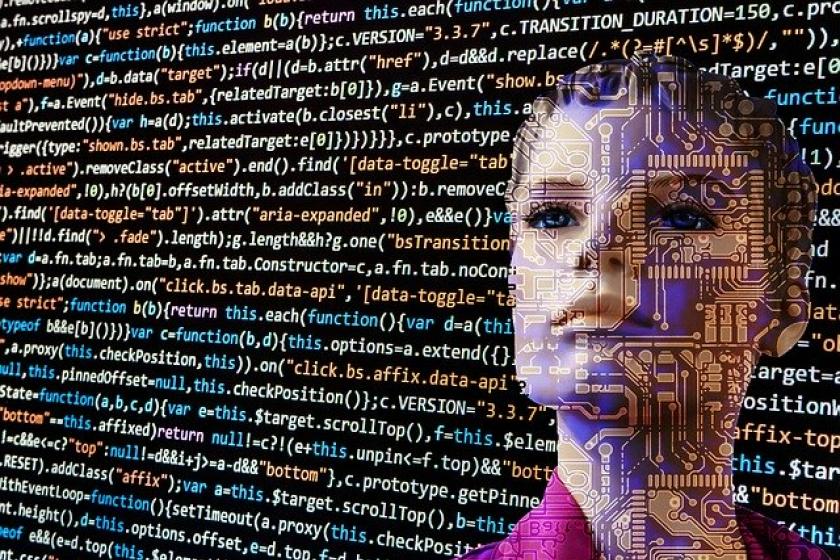Navigating the Global Technology Skills Gap with AI-Moderated Upskilling
The future workforce is already here, and it is more than ready to adapt – the vast majority of workers simply need the tools to upskill efficiently.
January 30, 2023

Work trends have rapidly changed across the world, post-pandemic. How and where people choose to work now or in the future is and will be radically different from how it used to be a few years ago. Labor markets across all sectors have undergone drastic shifts in terms of talent requirements and demands as businesses across the board increasingly accelerate the adoption of automation and emerging technologies.
This has resulted in a growing skills scarcity across the globe. As more technical and digital skills are required by workers in order to master emerging technologies, many organizations risk being left behind due to an undereducated and underprepared workforce. Businesses need to take the required steps now towards ensuring that their workforce, both present, and future, has the training and digital skills needed to thrive in the working environment set to emerge over the next decade.
The future as business embraces technology
The World Economic Forum estimates 150 million new technology jobs will be created globally over the next five years, with over three-quarters (77%) of all jobs set to require digital skills from workers by 2030. Right now, only a third (33%) of technology jobs worldwide are filled by the necessary skilled labor.
From a business perspective, this means the talent pool is severely diluted – for each skilled worker, and there are two other unskilled, unequipped ones. And it’s clear that, without reskilling and better preparing the workforce with the new digital and technology skills demanded by this changing job market, many workers risk long-term unemployment.
One thing is for sure, for those businesses looking to what the future holds: without rapidly changing the ways in which we reskill and upskill workers, this mass of untapped potential will only continue to grow as more new technologies emerge.
As more innovative technologies emerge, the strongest and most employable candidates for businesses are not necessarily the most intelligent ones but those most responsive to change. These candidates are not reactive or aversive but rather responsive and receptive when it comes to adopting new skills and overcoming new challenges. The new normal of business will be fuelled by exponential advancements in new and emerging technologies as we seek to refine the way work is done and make operations more efficient and effective.
Change will constantly come unabated. When we talk about preparing the workforce with the digital and technology skills required for ‘the future of work,' we are not talking about the potential needs of the global labor market in 2030. We are talking about an urgent need that clearly already exists. Businesses must act now or risk becoming rapidly irrelevant.
A New Post-Pandemic Era
History will look back on the Covid-19 pandemic as both a global health crisis and a turning point in how we work: a milestone that resulted in significant, lasting changes to the working world. Businesses worldwide responded to lockdowns by accelerating digitalization and the adoption of technologies such as internet of things (IoT) devices, virtual presences, artificial intelligence (AI), automation, and immersive experiences. Resulting, in many cases, in a much-needed disruption of established industries, with a hugely positive democratization of finance, education, job training, and even human capital and talent sourcing.
The pandemic was also the catalyst for a rapid acceleration of existing trends in remote work, e-commerce, and digital transformation. Up to 25% more workers found the need to switch occupations and reskill or upskill in order to stay relevant in the current and future workforce. These shifts have certainly altered recruitment parameters, required skillsets, and talent development goals across all industries, leaving millions of workers unprepared for these sudden changes completely in the lurch.
Post-pandemic, workforce reskilling and upskilling can no longer be treated as an optional focus; it has fast become an essential need for businesses across the world.
Preparing workers for the integration of technology
Technological developments are already accelerating at a rapid rate, with businesses already moving to adopt emerging next-generation technologies, such as AI and automation. Yet when it comes to whether their existing workforce has the knowledge and skillset to master the new integration of technology, businesses are lacking. As technology will only grow more advanced and evolve further, this issue cannot be ignored any longer. With the current scarcity of a workforce skilled in their usage, it falls on organizations to ensure they provide the necessary training to train workers and combat the current scarcity of a skilled workforce themselves.
Without customized or specific training, acclimatizing to emerging tech can appear overwhelming and daunting, not just for inexperienced younger workers joining the modern workforce but also for veteran workers needing to reskill for the sake of relevancy in the job market. Upskilling both the existing and emerging workforce through curated, skills-based training programs provides businesses with the tools they need to prepare their workforce for the future of work. This workforce can then be directly redeployed back into business operations, armed with the skillset and knowledge to utilize next-gen tech to its maximum potential.
Better than a classroom, prepared for deployment
Through tailored reskilling & upskilling programs, workers have also found it easier to transfer and apply their newly gained skills in work environments. With the rise of Augmented Reality (AR) and Virtual Reality (VR) solutions being integrated into business strategies, training in those areas needs to be accessible to workers.
For example, a recent PWC study found that workers trained in VR were found to be up to 275 percent more confident in applying skills learned after training – a 40 percent improvement over in-person classroom training. Similarly, VR learners were also four times faster to train than in the classroom and four times more focused than their e-learning peers.
The future workforce is already here, and it is more than ready to adapt – the vast majority of workers simply need the tools to upskill efficiently. A talent marketplace moderated by AI makes this task much easier to fulfill. Businesses can specify the training and skills they want to prioritize for their teams, and the marketplace curates the necessary mentoring and training programs specific to their needs. In starting this process now, businesses future-proof their workforce for years to come and reap the benefits of a highly employable and adaptable operational team.
Rehan Haque is the CEO of metatalent.ai.
Related articles:
About the Author
You May Also Like




